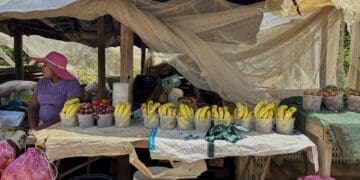South African SMMEs are encouraged to explore trading options with the United Kingdom, which will expose them to international markets. According to Charlie Morris, who is the trade policy advisor at the British High Commission, there were long-standing trade relations between the two countries and a number of programmes that could benefit SMMEs.
He was one of the guests at the “International Trade with the United Kingdom” webinar recently hosted by the Small Enterprise Development Agency to introduce various trade options for SMMEs with the UK. Morris said that due to the Economic Partnership Agreement between the Southern African Customs Union member states and Mozambique, which was ratified in 2019, South African goods were given extensive preference.
“About 96% to 97% of goods receive duty-free (and) quote-free access to the UK market with the remaining three to four percent of those receiving preferential access in some form,” he said. Morris also encouraged SMMEs to be aware of what the rules of origin were concerning trading between the two countries. “With respect to exports you should always seek professional advice, but in general goods (that are exported under the agreement) need to be wholly obtained from South Africa,” he said.
“You will need a certificate of origin to be able to qualify for preferences and you can obtain these from the South African Revenue Services or from your local chambers of commerce. “These certificates (provide evidence that the product that is being exported) is definitely from South Africa and is granted the preferential access instead of paying the 10% or 20% tariff,” he said.
Morris also noted that as of January this year, VI-1 certificates were no longer required for wine exports from South Africa. A VI-1 certificate accompanies imports of wine into Great Britain. It provides details of the shipment of wine and technical analysis of that wine. He also talked about recent initiatives by the UK government to foster trade relations between the UK and African countries.
These include the online Investment Deal Room that provides a platform for African projects to be showcased to UK investors. It was launched at the African Investment Conference last year. “We also currently have three projects we are supporting in (southern) Africa, (and these include) a citrus farm in the Eastern Cape, a fuel storage project and storage collection facilities in Lesotho, which open up some exciting projects (for SMMEs from South Africa),” he said.
“South African (medium-sized) businesses can also seek investment for their projects from UK investors, and that depends on whether you’re seeking a line of credit for investment or whether you want an equity investment in your firm.”































































